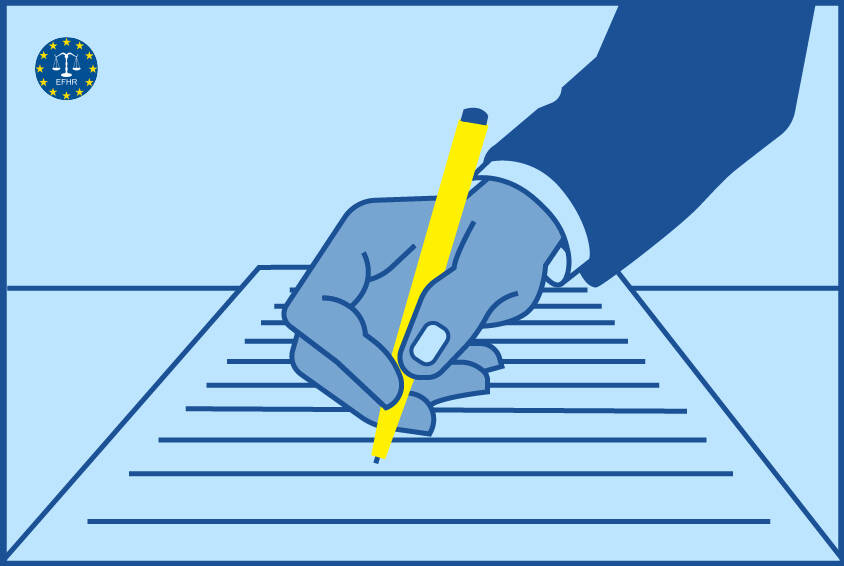- 2024/06/21
The European Foundation of Human Rights (EFHR) supports the restoration of the Polish language high school graduation exam (Matura) in Lithuania

After a 25-year break, students from schools with Polish as the language of instruction in Lithuania have taken the state Matura exam in Polish language and literature. The European Foundation of Human Rights (EFHR) welcomes this decision and emphasizes that the reinstatement of this exam is an important step towards protecting the rights of national minorities.
Over the past quarter-century, high school graduates from schools using Polish as the language of instruction could only take the Polish language exam at the school level. The grades obtained in this exam were not considered during admissions to Lithuanian universities, even for programs related to the Polish language. This situation stemmed from a 1998 decision by the then Minister of Education of Lithuania, who downgraded the status of the native language Matura exam in schools for national minorities to a non-compulsory school-level exam. This decision sparked outrage within the Polish community, which organized a mass protest rally and collected 25,000 signatures in a petition to the government calling for the reinstatement of the exam.
The European Foundation of Human Rights also highlighted the issues related to the lack of opportunity to take the Matura exam in Polish in the following years and consistently raised the matter of reinstating this exam at the state level during meetings on education. This topic was also discussed in Polish-Lithuanian talks. A breakthrough occurred in 2019 when the Ministers of Education of Lithuania and Poland signed a declaration regarding the education of the Polish national minority in the Republic of Lithuania and the Lithuanian national minority in Poland. This document included, among other provisions, a commitment to analyze the possibility of introducing a state-level Matura exam in Polish as a native language. A year later, a timeline for implementing this project was signed, and in 2024, the exam was held under the new regulations for the first time.
The reinstatement of the state Matura exam in Polish is not only a recognition of the Polish national minority’s right to education in their native language but also a significant step toward improving the quality of education in schools with Polish as the language of instruction. From now on, the exam results will be considered during admissions to Lithuanian universities, increasing opportunities for Polish youth to pursue higher education. This year, 778 candidates registered for the exam, highlighting the high level of interest and the importance of this exam for the Polish community in Lithuania.
EFHR warmly welcomes the decision to reinstate the Polish language Matura exam in Lithuania. This is a historic moment that proves the long-standing efforts of the Polish community have yielded the desired results. The Foundation emphasizes that this decision is an important step towards equality and respecting the rights of national minorities. It also highlights that the reinstatement of the exam is only the beginning. It is crucial to continue monitoring and supporting the quality of education in schools with Polish as the language of instruction. EFHR is committed to further supporting teachers, students, and parents, as well as taking actions to ensure that Polish language education in Lithuania will be conducted at the highest level.
Despite this significant success, much remains to be done. It is necessary to ensure that teachers have access to modern teaching materials and opportunities for professional development. It is also important that state financial and organizational support for schools of national minorities is adequate and long-lasting. EFHR calls for continued international cooperation to promote and protect the rights of national minorities. The Foundation will continue its efforts to monitor the education situation of the Polish national minority in Lithuania and take appropriate legal steps to ensure that these rights are fully respected.
Translated by Julia Falisz within the framework of a traineeship programme of the EFHR



